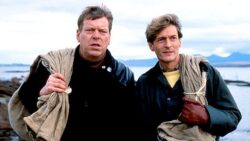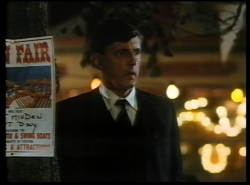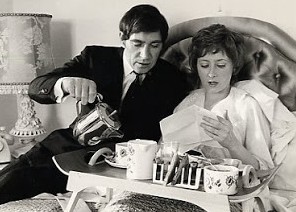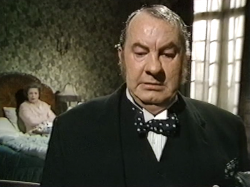by JOHN WHEATCROFT
 Sleepers arrived on our screens with perfect timing. Or at least that’s how it must have appeared to many viewers. When the first episode aired on BBC2 in April 1991, the Cold War was almost over.1 Two years earlier the Soviet-satellite communist regimes across Central and Eastern Europe had folded, for the most part peacefully. In December 1991, the USSR itself would be dissolved officially. The world was beginning to look like a much safer place, one in which we could laugh at the absurdities, futility and madness of an ideological battle waged by the two great super-powers, the USA and the USSR, since the end of World War Two. What better moment for a light-hearted look at a conflict which had once brought mankind close to its greatest ever catastrophe?
Sleepers arrived on our screens with perfect timing. Or at least that’s how it must have appeared to many viewers. When the first episode aired on BBC2 in April 1991, the Cold War was almost over.1 Two years earlier the Soviet-satellite communist regimes across Central and Eastern Europe had folded, for the most part peacefully. In December 1991, the USSR itself would be dissolved officially. The world was beginning to look like a much safer place, one in which we could laugh at the absurdities, futility and madness of an ideological battle waged by the two great super-powers, the USA and the USSR, since the end of World War Two. What better moment for a light-hearted look at a conflict which had once brought mankind close to its greatest ever catastrophe?
Sleepers, four episodes, tx. BBC2, 10 April to 1 May 1991. Written by John Flanagan and Andrew McCulloch, executive producers Verity Lambert and Michael Wearing, directed by Geoffrey Sax. A Cinema Verity production for the BBC. ↩

 There is a lot of dark stuff going on in A Day in Summer, the first novel by J.L. (James Lloyd) Carr. Literary critic D.J. Taylor described the novel as one that “defied classification […] a comic tragedy, if you like, by a gifted amateur still learning his trade.”
There is a lot of dark stuff going on in A Day in Summer, the first novel by J.L. (James Lloyd) Carr. Literary critic D.J. Taylor described the novel as one that “defied classification […] a comic tragedy, if you like, by a gifted amateur still learning his trade.”
